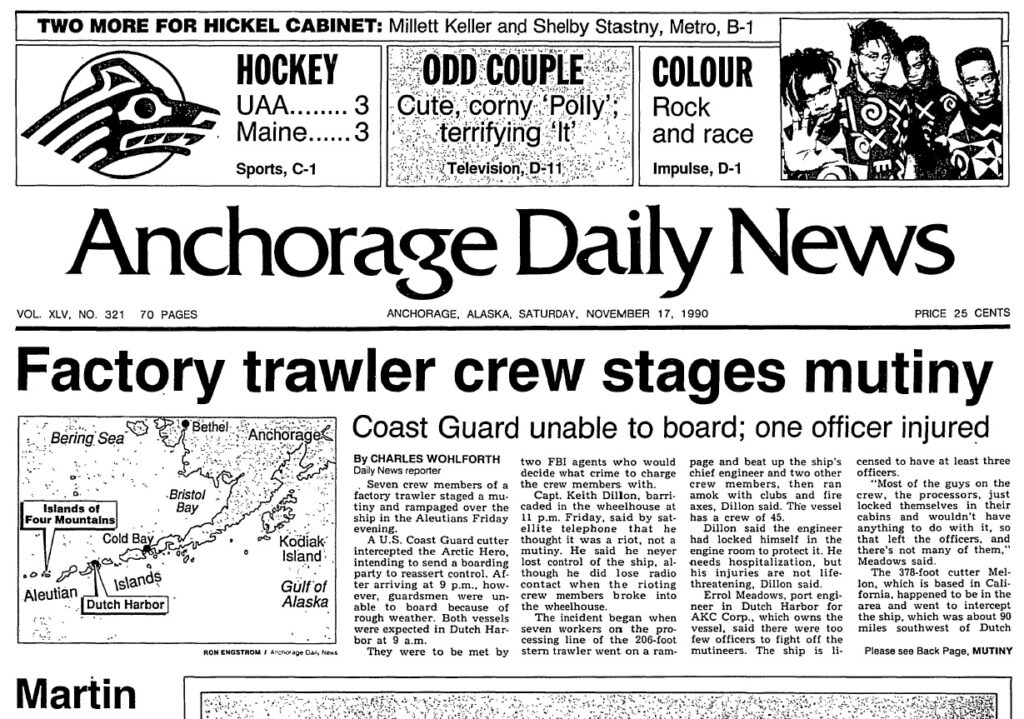
I was ready to go home at the end of my work day when I got a call about a possible mutiny at sea.
November 1990. We were in the middle of perhaps the last great American newspaper war, between my morning Anchorage Daily News and the evening Anchorage Times. Well-funded owners were throwing everything at beating the other paper on every story.
This was the most fun I ever had at work.
That night folks in western Alaska were listening on the single side-band radio to calls between a factory trawler ship out in the Bering Sea and the Coast Guard. Crew members were on a rampage and officers had locked themselves for protection in the wheelhouse and engine room.
The deadline for the morning paper had already passed. I began making calls to the fishing company, the port out in the Aleutian Islands the ship was nearest, and the Coast Guard. A cutter had intercepted the ship but guardsmen couldn’t board in dark, stormy waters.
Between calls I briefed my editor at the nearby city desk, who made the snap decision to remake the front page with a banner headline on the mutiny. He needed copy for the story fast. I wrote with the phone on my shoulder as I continued talking to sources. When the story was done the presses ran. The building rumbled.
Then I found a satellite phone number for the ship. I called it and the captain answered, barricaded in the wheelhouse, with mutineers roaming outside with fire axes after smashing lights and banging on the door. I got an interview with him while this was happening.
The editor stood by and listened. He ordered a chase. The presses would stop and new plates would be made with my updated story.
I hung up the phone and wrote. A press the size of a freight locomotive was waiting for my words, with a team of pressmen who would work into the night, and hundreds of people ready to pack, ship, and deliver 70,000 papers. I had just minutes to finish the piece so they could make the new plates and get back to work.
I didn’t have writer’s block. That just wasn’t one of the choices.
That world of journalism doesn’t exist anymore and I feel extremely lucky I was part of it. And I’m lucky, as well, that I received that training in writing on demand.
No doubt, writer’s block is real. In rare cases, it may even be a phobia. But most of the time, it happens when you don’t know what you want to say, you are unsure how to start, or you are worried about saying it wrong and looking foolish.
Those are issues I know how to address as a collaborator and coach. Sometimes one conversation is all it takes. As in sports, you need the skills and preparation, and if you have that, a mindset to avoid psyching yourself out.
And a little pressure can help. Like a huge printing press waiting for your words.
As for the mutineers, that drama ended totally differently than I expected that night. When they got ashore, the authorities took the side of the slime-line workers, who had been abused and defrauded of their pay. The ship was seized. And that story went on the press the next night.